Arts in STEAM 2022 Conference

Call for contributions: artworks, presentations, and workshops
From an education system perspective, a significant role in the development and nurturing of students’ curiosity, creativity, problem solving competencies, and collaboration abilities has been assigned to transdisciplinary STEAM education. In that context, the Arts in STEAM 2022 Conference will provide an opportunity for scientific exploration of STEAM education with an emphasis on the role of the arts in that transdisciplinary endeavor.
Researchers, educators, and artists are invited to contribute to this conference in one of the following formats:
1. Arts/creative contributions (any format, visual and performance)
The creative works/arts contribution can be in any format and size, visual-painting, sculpture - digital or performance.
Creative contributions will take place on Thursday from 8:30 CET
Please find the latest schedule here.
Please find artwork by artists clicking this link.
2. Workshops (games and activities)
Workshops are interactive and practical session that promote skills development, knowledge exchange, and collaboration among participants and workshop facilitators. They aim at inviting you to contribute to the session by getting you active!
Workshops will take place on Thursday from 8:30 CET
Please find the latest schedule here.
3. Research presentations
Research presentations will be 10 minutes long with an opportunity to discuss the topic afterwards in depth.
Scientific presentations on Thursday - Schedule
Scientific presentations on Friday - Schedule
Schedule
Complete Schedule in Central European Time (CET)
Thursday, January 20, 2022
8:30 – 08:35 Welcoming Words – Zsolt Lavicza
08:35 – 11:30 Interactive Session: Art, Cognitive Games, and Workshops – Eva Ulbrich
11:30 – 12:00 Robotic Interfaces – Johannes Braumann
12:00 – 13:00 Lunch Break
13:00 – 17:00 Scientific Presentations
13:00 – 13:10 Opening of Scientific Program – Zsolt Lavicza
13:10 – 14:00 Keynote
Title:
STEAM Powered Circus of Knowledge
Speaker:
Mara Alagic (Wichita State University, USA)
14:00 – 15:30 Parallel Sessions – 10 Minutes Presentation, 5 Minutes Discussion
15:30 – 16:00 Coffee Break
16:00 – 17:00 Parallel Sessions – 10 Minutes Presentation, 5 Minutes Discussion
Friday, January 21, 2022
8:30 – 08:40 Opening – Zsolt Lavicza
08:40 – 11:35 Scientific Presentations
8:40 – 10:15 Parallel Sessions – 10 Minutes Presentation, 5 Minutes Discussion
10:15 – 10:30 Coffee Break
10:30 – 10:45 Introduction to Circus of Knowledge – Airan Berg
10:45 – 11:35 Keynote
10:45 – 11.10
Title:
Using a Posthumanist Lens to theorise ‘Making-with’ in Transdisciplinary Creativities: Exploring the value of ‘Temporal Diffraction’ as a form of analysing (co-) authorings
Speakers:
Pamela Burnard (University of Cambridge, United Kingdom)
Laura Colucci-Gray (University of Edinburgh, United Kingdom)
Carolyn Cooke (Open University, United Kingdom)
Abstract
11:10 – 11:35
Title:
Cognitive Development through Creative Problem-solving: Celebrate the 150th Anniversary of Mondrian's Birth with Mondrian Blocks!
Speakers:
Kristóf Fenyvesi (Finnish Institute for Educational Research, University of Jyväskylä)
László Mérő (Eötvös Loránd University, Hungary)
Imre Kökényesi (Smart Egg LTD, Hungary)
Christopher Brownell (Fresno Pacific University, USA)
Eleonóra Stettner (Kaposvár University, Hungary)
Abstract
11:35 – 12:00 Discussion – Reflections moderated by Zsolt Lavicza & Eva Ulbrich
12:00 – 13:00 Lunch Break
13:00 – 15:00 Panel discussion of the Arts in STEAM Conference
Furthering STEAM Education
Chairs: Zsolt Lavicza (JKU), Kristóf Fenyvesi (University of Jyväskylä, Finnish Institute for Educational Research)
Part 1: STEAM Around the World
Paula Vorne (City of Oulu, Finland): The STEAM in Oulu Network
György Darvas (Symmetrion, Hungary): Complex Symmetries in Research and Education
Werner Olivier & Carine Steyn (Nelson Mandela University): STEAM in South Africa
Rosa Cecila Caro, Sofia Ramirez Soto (Colegio Hacienda Los Alcaparros, Columbia): The Creative Brain Project and the Classroom Thinktank
Part 2: STEAM in Austria
Christian Bertsch (University College of Teacher Education Vienna): Vienna, Austria
Doris Arztmann (BMBWF): Vienna, Austria
Marie-Sophie Attems (OeAD, Innovation Foundation for Education, MINT4future): Vienna, Austria
Peter Koller (Alpen-Adria University): Klagenfurt, Austria
Invited speakers
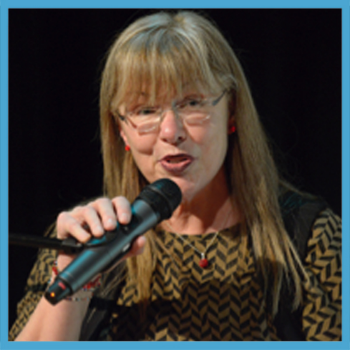 | 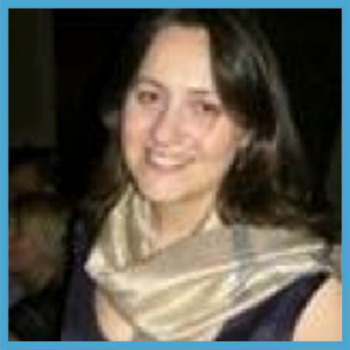 | 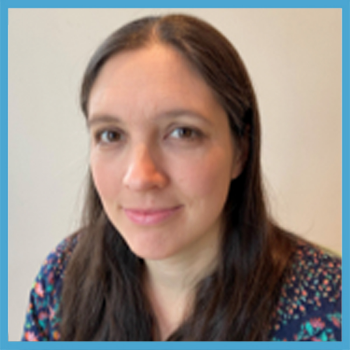 |
| Pamela Burnard is Professor of Arts, Creativities and Educations at the Faculty of Education, University of Cambridge where she Chairs the Arts and Creativities Research Group and runs an online monthly seminar series called ‘Performing Research. She has published widely with 20 books and over 100 articles which advance the theory of multiple creativities across education sectors including early years, primary, secondary, further and higher education, through to creative and cultural industries and transdisciplinary (STEAM) practices. | Laura Colucci-Gray is Head of Institute and Associate Professor in Science and Sustainability Education at Moray House School of Education and Sport, University of Edinburgh. Laura leads the STEAM and Sustainability strategy across Initial Teacher Education and she is co-lead of the Teacher Education, Curriculum and Pedagogy Research hub. She has published extensively across the fields of science education, teacher education and sustainability education drawing together issues in science and society with embodied and dialogical approaches in education. | Carolyn Cooke is an Education Lecturer with the Open University, teaching and managing modules in Primary Education and the Education Doctorate courses. She also has a strategic role in developing OU educational outreach work in Scotland, focusing on professional learning for education practitioners. With a background in music education and teacher education, Carolyn has recently completed her PhD ‘Troubling’ music education; playing, (re)making and researching differently’ (2020), publishing book chapters and articles around posthumanism, transdisciplinarity, and practices of ‘making’ (particularly improvisation) as a result. |
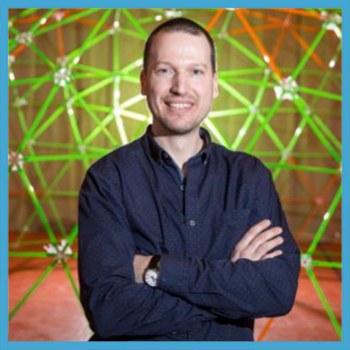 | 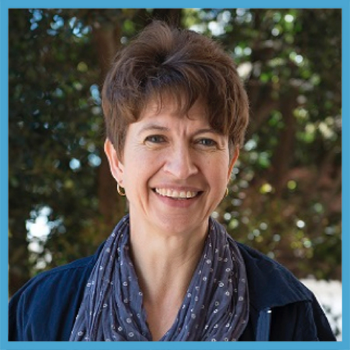 | 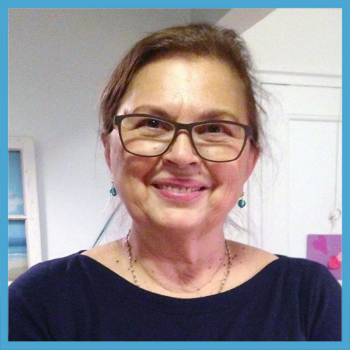 |
| Kristóf Fenyvesi (b. 1979) – is a researcher of STEAM Trans- and Multidisciplinary Learning and Contemporary Cultural Studies in Finland, at the Finnish Institute for Educational Research, University of Jyväskylä. Member of the Research Group for Innovative Learning Environments and Research Group for Education, Assessment & Learning. | Carine Steyn is the Academic Project Co-ordinator for the Govan Mbeki Mathematics Development Centre (GMMDC) at the Nelson Mandela University. She manages the National Math Art Competition for Secondary Schools in South Africa as part of the STEAM focus of the centre and the TPACK Professional Development Project for Mathematics teachers in the Eastern Cape. | Mara Alagic is a professor and graduate coordinator for MEd in Learning and Instructional Design at Wichita State University, USA. She is currently also a visiting professor in the Department of STEM Education at Johannes Kepler Universität Linz Austria. Her research engagements in connecting the arts and mathematics resulted in her leadership role as Editor in Chief of the Journal of Mathematics and the Arts, published by Taylor & Francis, UK. |
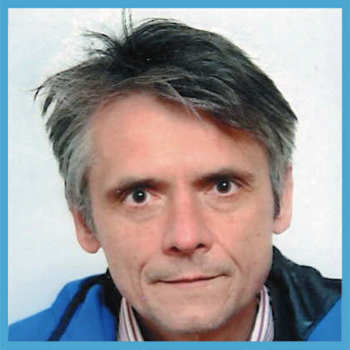 | 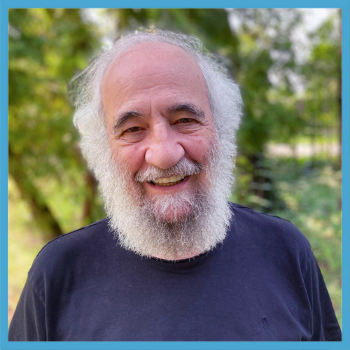 | 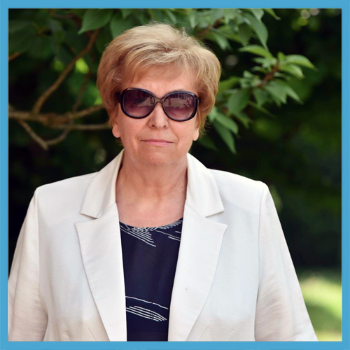 |
| Imre Kökényesi is an electrical engineer by training. He is the producer and creative developer of Mondrian Blocks, Smart Egg, and a number of other cognitive games with great educational relevance. During his professional career, Imre created the Red Bull Rubik’s World cup series, and led media and publishing companies in Hungary and overseas. | László Mérő is a professor of psychology at the Eötvös Loránd University, Budapest. His original education is mathematician, then he was an artificial intelligence researcher for ten years before he joined the Department of Psychology. His popular science books were published in 11 languages. He is a game developer, too, had been working on developing several games with Ernő Rubik, the inventor of Rubik's Cube. | Eleonóra Stettner is an associate professor at the Hungarian University of Agriculture and Life Sciences. Has a master's degree in mathematics, physics and information technology, and a PhD in geometry. She has been involved in several research groups on mathematics education. Her research interests include geometry, topology, computer-assisted teaching of mathematics, the relationship between mathematics and art. |
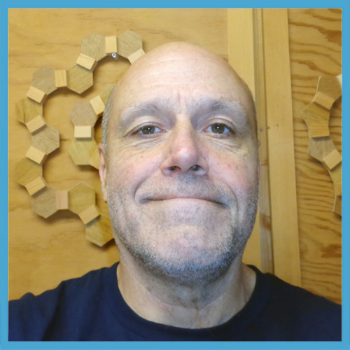 | 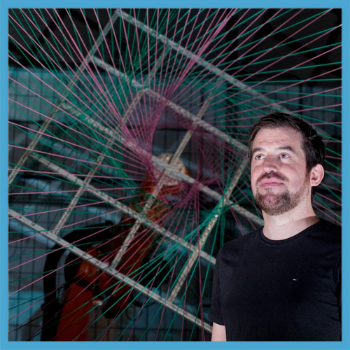 | 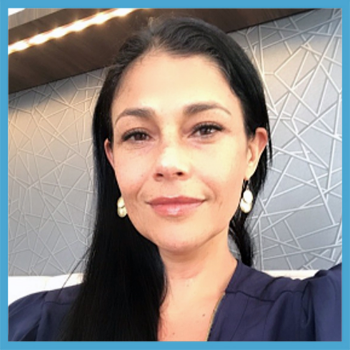 |
| Albert P. Carpenter is a mathematical artist. He explores the aesthetics of structure, order, harmony, and symmetry in the creation of geometric and topological sculptures. Recently, he has become interested in using computational creativity in mathematics education software for 3D printing. | Johannes Braumann is a professor for Creative Robotics at UfG Linz, leading an interdisciplinary team of researchers towards exploring robots as an interface between the digital and physical world. As co-founder of the Association for Robots in Architecture, Johannes is tightly linked with both the robotics and design community. He is the main developer of the accessible robot simulation and programming tool KUKA|prc. | Sofia Ramirez is a Knowledge Translation Specialist and has worked for the Canadian Institute for Advanced Research, the Association of Ontario Health Centres, the Royal Ontario Museum and Sick Kids Hospital in Toronto, Canada. Her expertise lies in helping to make complex data or scientific findings accessible. She leads the area of Global Connections at Colegio Hacienda Los Alcaparros. |
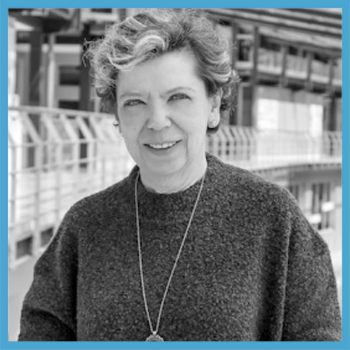 | 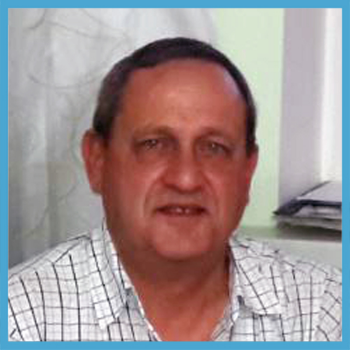 | 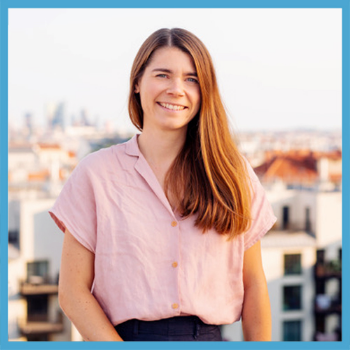 |
| Rosa Cecilia Caro is a philosopher from the Universidad del Rosario, Bogotá, and has a Master’s degree in Contemporary Ethics from the State University of New York at Stony Brook and a specialization in Collaborative Practices offered by Sistemas Humanos, Bogotá. She is the co-founder of Colegio Hacienda Los Alcaparros and is recognized as an expert on issues of human development, project-based learning, evaluation processes and education for peace. | Werner Olivier is a professor and founder-director of the Govan Mbeki Mathematics Development Centre (GMMDC) at the Nelson Mandela University in Port Elizabeth, South Africa. He actively practices and promotes the scholarship of engagement in HE with the goal of improving the quality of teaching and learning of mathematics and physical sciences in schools. | Marie-Sophie Attems is currently a project developer at the Foundation for Innovation in Education (Innovationsstiftung für Bildung), where she is responsible for the annual focus “MINT4future”, which deals with STEM (Science, Technology, Engineering, Mathematics) and ESD (Education for Sustainable Development). With an interdisciplinary academic background in Geography and Natural Resources Management, she has obtained her PhD in 2020. |
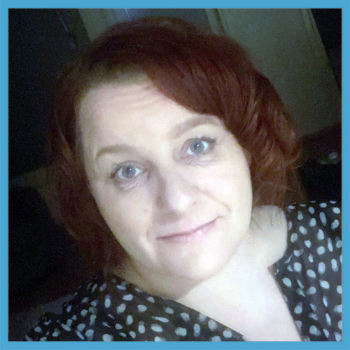 | 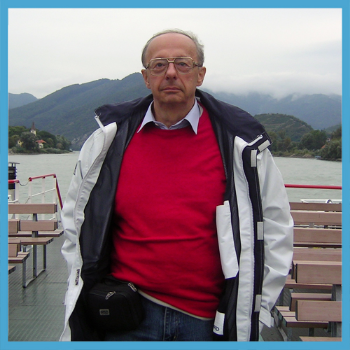 | 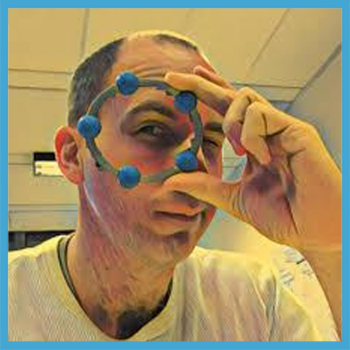 |
| Paula Vorne is a Primary School Teacher but she currently works as Project Manager for the City of Oulu, Department of Education and Culture. One of her work tasks at the moment is to coordinate the STEAM in the Oulu network which is a growing network of STEAM enthusiastic. | György Darvas, physicist, philosopher; director of Symmetrion; retired from the Hungarian Academy of Sciences and the R. Eötvös University, Budapest; editor of Symmetry: Culture and Science; founder of International Symmetry Association. Main fields of interest: symmetries in physics, the sciences and the arts, symmetries in science and art education. | Diego Lieban is a Mathematics Professor of IFRS-Bento Gonçalves/Brazil and collaborator of OBMEP (Brazilian Mathematics Olympiad Program in Public Schools). PhD in STEM Education (2019) at Johannes Kepler Universität, in Linz / Austria, performing part of his work and studies to implement the 3D printing features on GeoGebra platform. |
Organising committee
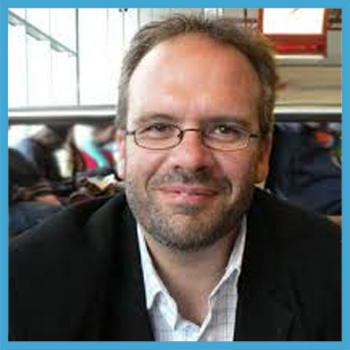 |  | 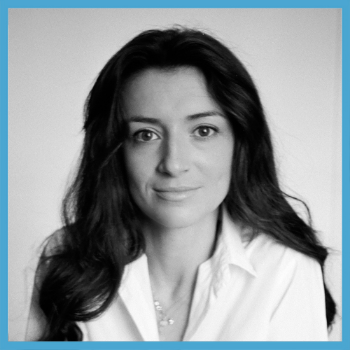 |
| Zsolt Lavicza is a university professor in STEM education research methods at the Department of STEM Education, Linz School of Education, Johannes Kepler Universität Linz Austria. He has worked on several research projects examining technology and mathematics teaching in classroom environments. He has greatly contributed to the development of the GeoGebra community. | Mara Alagic is a professor and graduate coordinator for MEd in Learning and Instructional Design at Wichita State University, USA. She is currently also a visiting professor in the Department of STEM Education at Johannes Kepler Universität Linz Austria. Her research engagements in connecting the arts and mathematics resulted in her leadership role as Editor in Chief of the Journal of Mathematics and the Arts, published by Taylor & Francis, UK. | Bettina Bakos has over 3 years of experience working in advertising. During her self-employment, she has become highly proficient at set design, photography, marketing, and social media. Her deep understanding for artistic ability, creativity, and an eye for design has led to opportunities collaborating with advertising agencies, photographers, and clients to ensure that their visions and goals were fully achieved. |
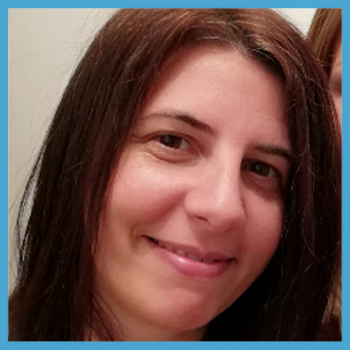 | 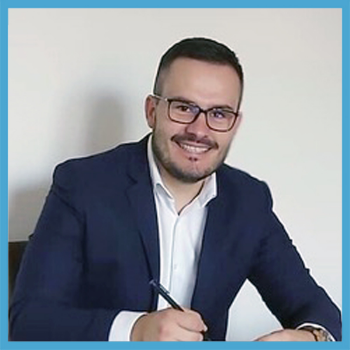 |  |
| Eva Ulbrich is experienced with digital manufacturing such as 3D printing and loves teaching how to use this technology to teachers, students, and anyone who is interested in learning about 3D printing. She is a PhD student at the School of Education at the Johannes Kepler University Linz. | Branko Andjic is a research project manager at Johannes Kepler University Linz. He received his PhD in 2020 in the field of STEAM education for visual impairment students. He is interested in research in STEAM education and adaptation of its content to students with disabilities. He has been involved in 7 international and 5 national projects in education. | Kristóf Fenyvesi, PhD (b. 1979) – is a researcher of STEAM Trans- and Multidisciplinary Learning and Contemporary Cultural Studies in Finland, at the Finnish Institute for Educational Research, University of Jyväskylä. Member of the Research Group for Innovative Learning Environments and Research Group for Education, Assessment & Learning. |
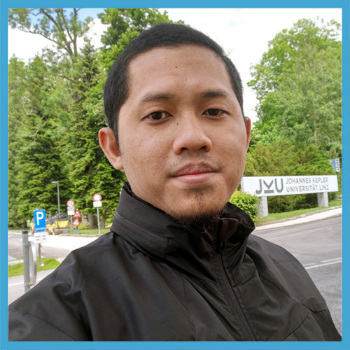 | 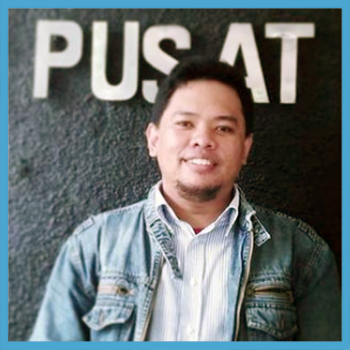 |  |
| Imam Fitri Rahmadi is a lecturer at Universitas Pamulang Indonesia and currently a PhD student at the Department of STEM Education, Linz School of Education, Johannes Kepler Universität Linz Austria interested in exploring user-generated microgames for STEM education. Educational technology integration into learning and instruction is his overall research interest. | Fadhlan Muchlas Abrori is a lecturer at the University of Borneo Tarakan. He is currently a PhD student at the STEM Education Department at Johannes Kepler University Linz. His PhD is funded by the Indonesia-Austria Scholarship Programme (IASP). His research interest is related to digital comics in STEM learning. | |

